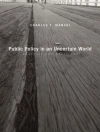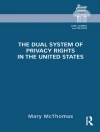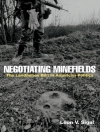Why are policymakers, scholars, and the general public so surprised when the world turns out to be unpredictable?
World Politics at the Edge of Chaos suggests that the study of international politics needs new forms of knowledge to respond to emerging challenges such as the interconnectedness between local and transnational realities; between markets, migration, and social movements; and between pandemics, a looming energy crisis, and climate change. Asserting that Complexity Th...
Why are policymakers, scholars, and the general public so surprised when the world turns out to be unpredictable?
World Politics at the Edge of Chaos suggests that the study of international politics needs new forms of knowledge to respond to emerging challenges such as the interconnectedness between local and transnational realities; between markets, migration, and social movements; and between pandemics, a looming energy crisis, and climate change. Asserting that Complexity Thinking (CT) provides a much-needed lens for interpreting these challenges, the contributors offer a parallel assessment of the impact of CT to anthropocentric and non-anthropocentric (post-human) International Relations. Using this perspective, the result should be less surprise when confronting the dynamism of a fragile and unpredictable global life.
This book is freely available in an open access edition thanks to Knowledge Unlatched—an initiative that provides libraries and institutions with a centralized platform to support OA collections and from leading publishing houses and OA initiatives. Learn more at the Knowledge Unlatched website at:
https://www.knowledgeunlatched.org/, and access the book online at the SUNY Open Access Repository at
http://hdl.handle.net/20.500.12648/7129.












